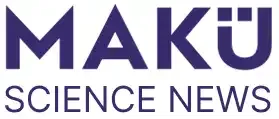A New Era in Multilingual Education: English and Beyond in Universities in Turkey
Yapılış Tarihi | 05 March 2024, Tuesday
The study is seen as important in providing critical insights into the complex language realities in EDI courses that are becoming increasingly widespread worldwide.
The study investigates the perspectives of 15 Turkish university students, faculty members and students on 'translanguaging' practices, defined as the educational and communicational use of multiple languages in classrooms where English is used as the Medium of Instruction (EMI) (e.g., Boğaziçi Uni., METU, etc.). The study is seen as important in providing critical insights into the complex language realities in EMI courses, which are increasingly prevalent worldwide.
This study aims to understand whether and how students and faculty members transition between languages in EMI classrooms and their attitudes towards such multilingual practices against institutional English policies. It aims to contribute to the academic literature by shedding light on the beliefs and basic language practices of EMI stakeholders, which often differ from formal monolingual policies. The study addresses the need to create more inclusive language policies that acknowledge the importance of students' proficiency in various languages in teaching by conveying these inconsistencies to language policy makers.
Multilingualism Transformation in EMI Classrooms
One of the key findings is that despite most faculty members strictly adhering to teaching only in English, students see translingual practices (use of multiple languages/mother tongue) as useful resources for understanding complex content, expressing identities, increasing class participation and belonging. Uncertainties about translanguaging, institutional assessment pressures on English use, and an increase in the number of international students in classes have led faculty members to hesitate to use languages other than English in their classes.
Multilingualism: Flexible and Inclusive Outcomes in EMI
Therefore, the study underlines the need for a multilingual shift in EMI pedagogies and for policies and education that enable faculty members to benefit from students' bilingual or multilingual repertoires instead of rejecting them.
In conclusion, this study reveals that EMI faculty members need to be encouraged and strengthened to adopt translanguaging to enhance teaching and learning, and policy makers need to create more flexible arrangements that allow translanguaging rather than censoring languages other than English in academic contexts. Appreciation and use of linguistic diversity can make EMI classrooms more inclusive and the most suitable environments for Turkish students to achieve academic success on their own terms.
Diğer Haberler


23 May 2024, Thursday
The Secret of Forgiveness: How Can We Renew the Mind with Positive Psychology?Detail
05 March 2024, Tuesday
A New Era in Multilingual Education: English and Beyond in Universities in TurkeyDetail






